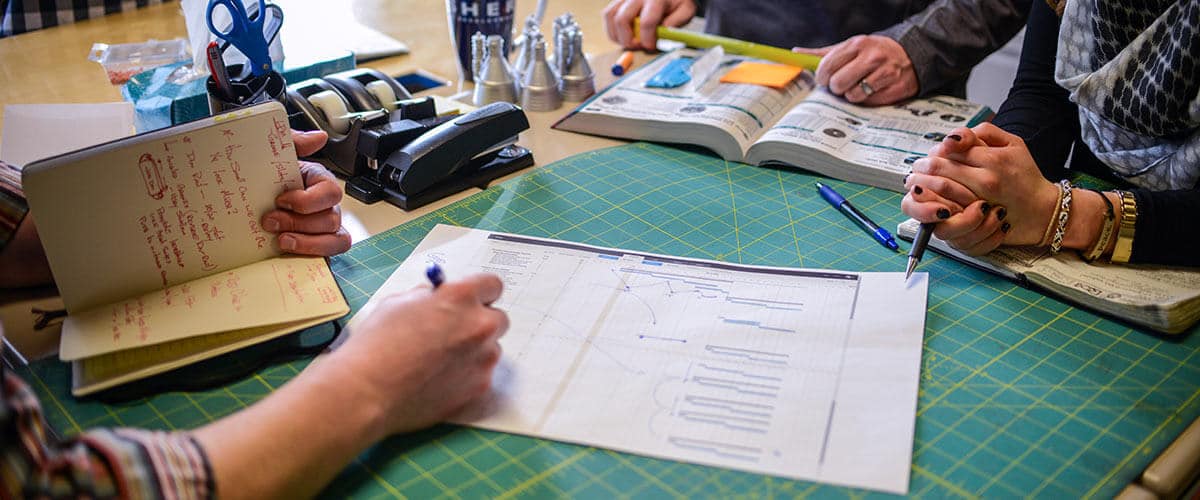The Power of the Checklist
April 14, 2017

Written By:
Jeff Disher | Founder & Chairman of the Board

Relying on Memory is a Bad Strategy
I’ve read a number of blogs and articles recently that have had titles like these: “Embracing Failure”, “Learning from our Failures”, “Fail Fast, Fail Cheap”, and so on. All were making the point that failure is a good thing from which we grow and learn. We are often encouraged to fail more, not less, and in-turn we are called to extract great wisdom and insight from these failures to make us better at what we do. More is better. Right? Well, yes, but… that’s only half of the picture.
In his book, The Checklist Manifesto – How to Get Things Right, Atul Gawande, a surgeon, states that we have only two reasons for failure: ignorance and ineptitude. Ignorance says that we didn’t have the knowledge or skill available. Ineptitude says we didn’t apply the knowledge and skill we had correctly. For those on a learning curve or working in research and development where knowledge and skill have yet to be gained, failure can be a great teacher provided those failures are low-enough risk. But for those who are trained and competent in a specific area, like surgery or flying, failure is unacceptable. It will not be embraced. It will not be a good thing. This mindset is not just with high-risk tasks like surgery and flying where peoples’ lives are at stake, but also with our tasks as designers and engineers where failure to execute on our expertise may ruin reputations or create unnecessary expenses and time delays. Failure, in these cases, is avoidable— yet, mistakes continue to be made. Even our gurus, master craftsmen, and specialists are subject to failure. The difficulty is that the complexity of a task can grow beyond a person’s ability to remember all of the detail and to remember them at the right time. Gawande writes,
“Avoidable failures are common and persistent, not to mention demoralizing and frustrating, across many fields – from medicine to finance, business to government. And the reason is increasingly evident: the volume and complexity of what we know has exceeded our individual ability to deliver its benefits correctly, safely, or reliably. Knowledge has both saved us and burdened us.”
Relying on our ability to remember is a bad strategy. Enter… the checklist.
In all of my years in product development, spanning from the design studio to the manufacturing floor and everything in between, I have found no better tool to assure accuracy and diligence than the ordinary checklist. Checklists provide the chance to remember everything and get it right the first time. They can bring a culture of discipline and excellence to your group— a higher standard. They are essentially bulletproof when used.
Even when tasks are few and easy, a step might be forgotten. Gawande writes of five simple and routine steps that all doctors need to do to prevent infection when putting in a central line. These steps range from washing your hands with soap to putting a sterile dressing over the insertion site once the line is in. Once this simple five-step checklist was put in place at one hospital, the results were dramatic. The 10-day, line-infection rate went from 11 percent to zero. Over a 15-month period, it was calculated that they had prevented 43 infections and eight deaths while saving two-million dollars in cost. Wow!
So, why are checklists not used more if they can be so effective? Two reasons top the list: effort and pride.
Checklists require extra effort. It takes time to create them and time to actually use them. I am a culprit myself. One time my wife asked me to pick up four basic items from the grocery store. Of course I didn’t write them down because, come on, it is only four things! And, for cryin’ out loud, I would have to find a pen and a slip of paper to write them down. While at the store, I thought I would surprise my wife and pick up a few extra treats. When I got home and proudly showed her that I went above and beyond, she looked over the contents and asked, “Where are the eggs?” I was back in the car 30-seconds later. Even when a list is available, we often take short cuts to save time by skipping steps we assume don’t apply. You know the ending to that story too. There’s much truth to the cliché, “If you have time to do it a second time later, you have time to do it right the first time now.” Using checklists are an investment in the avoidance of grief later on. In our professional lives, the cost of that grief is often much bigger than we think and the impact much more than just financial.
Checklists are also humbling. A big reason people don’t use checklists when presented with the opportunity is pride. “Checklists are fine for others but I don’t need them. I’m an expert. I can remember.” It is like the rock climber who scales the face of a cliff without ropes or belay. He is seen as skilled, courageous, and daring when he makes it. But that is not what your manager or customer will think of you when you try to explain why the wrong revision level of data was used to cut the tool or a standard clearance requirement was overlooked in the studio causing a human-factors issue once first parts were made. You won’t look like an expert then.
A Few Helpful Tips
+ Determine the activities in which you need to reduce or eliminate errors and implement a checklist for them
+ Keep your checklist focused by making it a single document that includes only the minimum necessary steps in a process
+ Keep your checklist updated with new information you gain after each use
One final tip I encourage people to do is take notes during meetings, especially with customers. In doing so, you are not only creating a quick checklist of tasks to do coming out of the meeting, but you are demonstrating a sense of reliability to everyone there.
If you consider the negative impact of mistakes in your area of expertise, you will quickly see how a small investment in making and using checklists will save time, money, and your reputation. It is a wise investment to make!
DISHER offers a wide variety of integrative business solutions and practical specialty services for customers, both large and small. Learn more about organizational development coaching, leadership coaching, Lunch & Learns, workshops, culture tours, and more by contacting DISHER.



